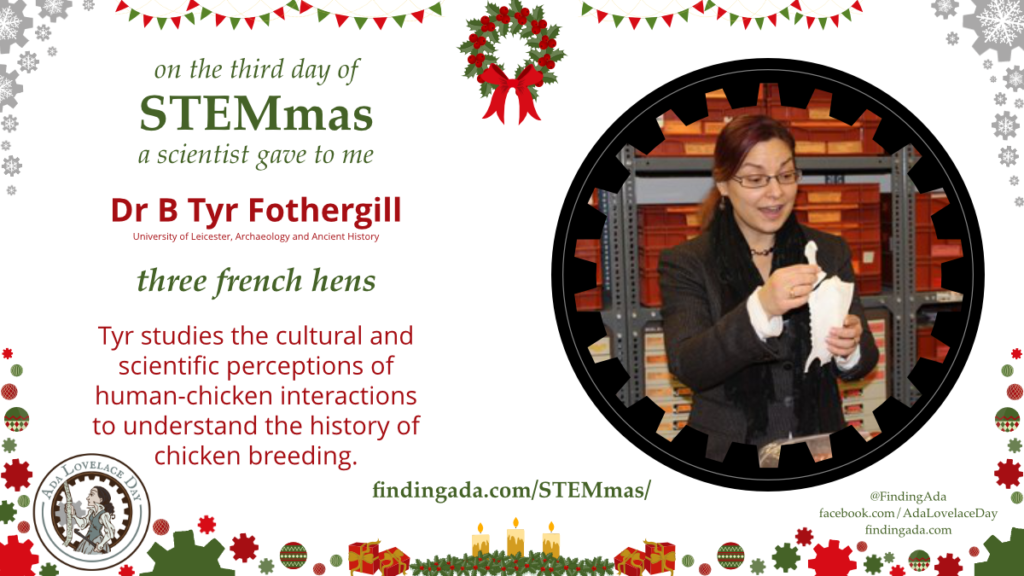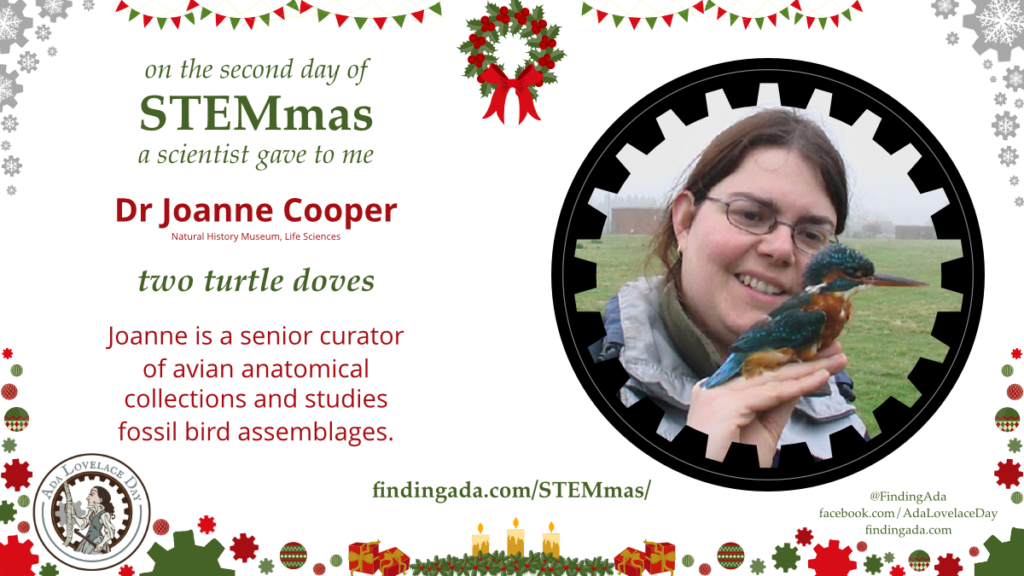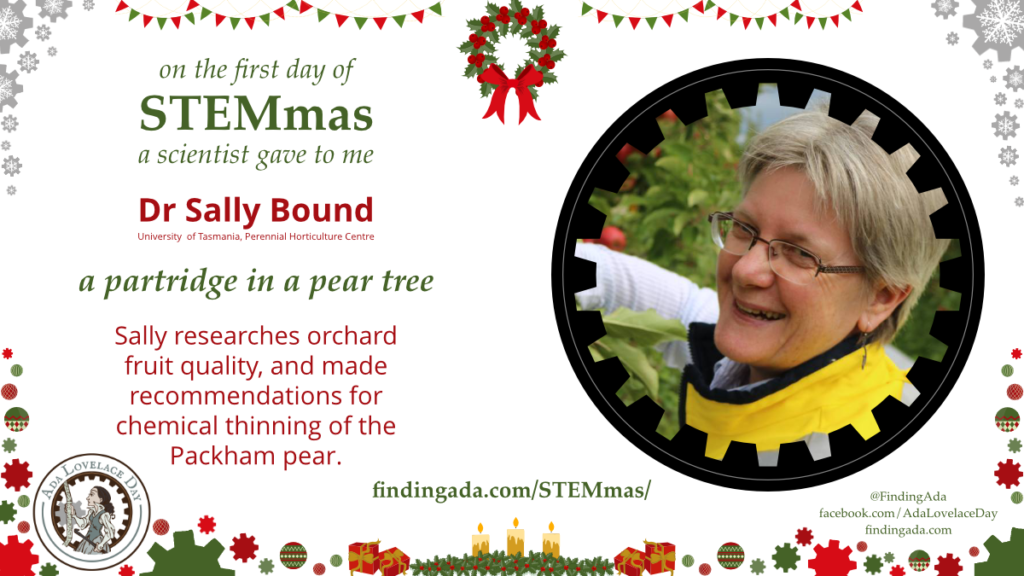Our third awesome woman in STEM is Dr Tyr Fothergill, who studies human-chicken interactions.
Tyr is an “archaeologist who studies the recent past, the post-medieval or historical period, [who is] keen to investigate how our ways of thinking about the period from about AD 1500 to the present day can feed into critical heritage approaches.” Tyr is currently studying the “Cultural and Scientific Perceptions of Human-Chicken Interactions, mainly involving the application of zooarchaeological approaches (including palaeopathology and osteometrics) to archaeological materials in order to create fresh and nuanced understandings of chicken breeding and husbandry from domestication to the present day.”
Twitter: @FothergillTyr


